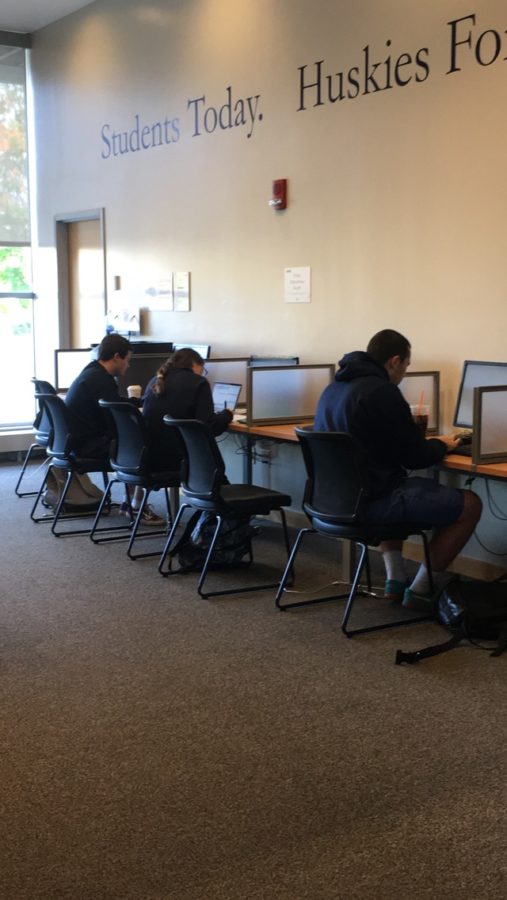Full Time vs. Part Time Students: What’s the Difference
If you’re a highschooler (juniors and seniors especially), you’ve probably thought about your plans after you graduate. Most will head to some sort of college or university. Some are fortunate enough to have parents that can pay for tuition in full. However, the majority of students must obtain loans, or pay for tuition in other ways, usually by working a full-time or part-time job. For many, they choose to use a combination of both: taking out loans to pay the bulk of the cost, and working part-time to minimize loan debt, and have some extra money to spend on things like food. One Hall senior said, “You need to work to afford college…anything that will support me, at least slightly…and pay off all those loans”. However, what happens if you aren’t a full time student?
What is a part-time student?
Part-time students are students who take college classes, but don’t meet the credit requirements of a full-time student. Part-timers normally choose to take one to two classes per week, and meet half the credit requirements. This way, students can work full-time jobs and concentrate energy towards that while still taking classes. Many colleges have programs and accommodations for part-time students, and there are known benefits to this. Students who have full-time jobs not only make more money, but also gain valuable work experience.
What is a full-time student?
Students who have twelve or more credit hours per semester are considered to be “full-time”. These are the “typical” college students, living on-campus or commuting to school. They often work part-time jobs on campus, ten to fifteen hours a week, to supplement student loans and extra costs.
How do they compare?
The biggest difference in full-time and part-time students is the number of available hours one has to work outside of school. As mentioned before, a full time student at a university generally takes between 12 and 16 credit hour courses a semester, equivalent to four to five classes. Each class meets for approximately three hours a week, hence each course being a “3 credit hour course”. This equates to a full-time student spending between 15 and 20 hours a week in class, plus time outside of class completing homework and projects.
Meanwhile, a part-time student does not have the same sorts of restrictions. Only taking one to two classes per week means that there is more flexibility in terms of time spent in and for class. Increased time out of class leads to them being able to work more hours a week. According to a study done by Georgetown University, “about 40 percent of undergraduates and 76 percent of graduate students work at least 30 hours a week.” This, accompanied by a lighter academic schedule, can prove to be fruitful for some students.
However, balancing both full-time schooling and work can be difficult. The same Georgetown study states that, “25 percent of all working learners are simultaneously employed full-time and enrolled in college full-time.” This harsh reality can easily become overwhelming, leading most full-time students to opt for a part time job. As said by Brigham Young University, who cited the National Center for Education Statistics (NCES), who, “found that students working 1-15 hours weekly have a significantly higher GPA than both students working 16 or more hours and students who don’t work at all.” Student employment while demonstrated to improve efficiency, also increases stress. On-campus jobs are also more popular, as it can lead to greater social networking and increase graduation rates along with its general convenience.
What about negatives?
With any task comes some negative aspects. For some, the balancing act of work and studies is too daunting, and ends up in lower grades. Scott Dobroski, an expert from job review site Glassdoor, says, “It’s all about balance … if [a teen’s] grades are slipping, then that does take priority over work.” Teenage and college-aged workers are also often seen as expendable by employers, and may be called in for extra hours or may be the first to be let go (in case of economic crisis).
Overall, there are many perks to having some sort of a job during your college years. Whether you decide to go part-time or full-time, both have their respective benefits, and potential downfalls. You must choose what will suit your lifestyle and future plans the best.







